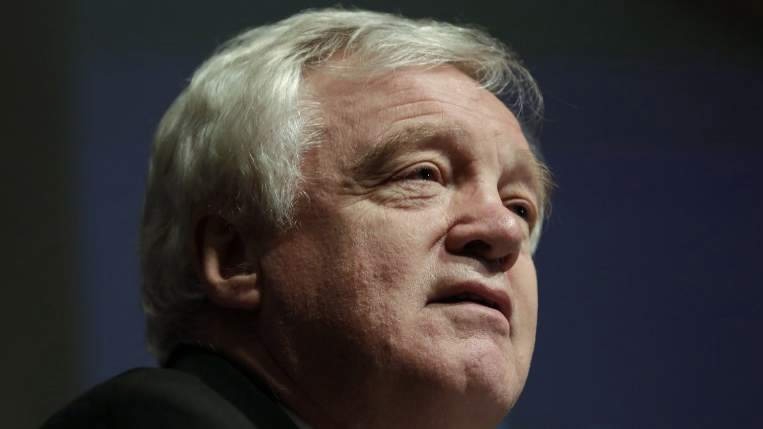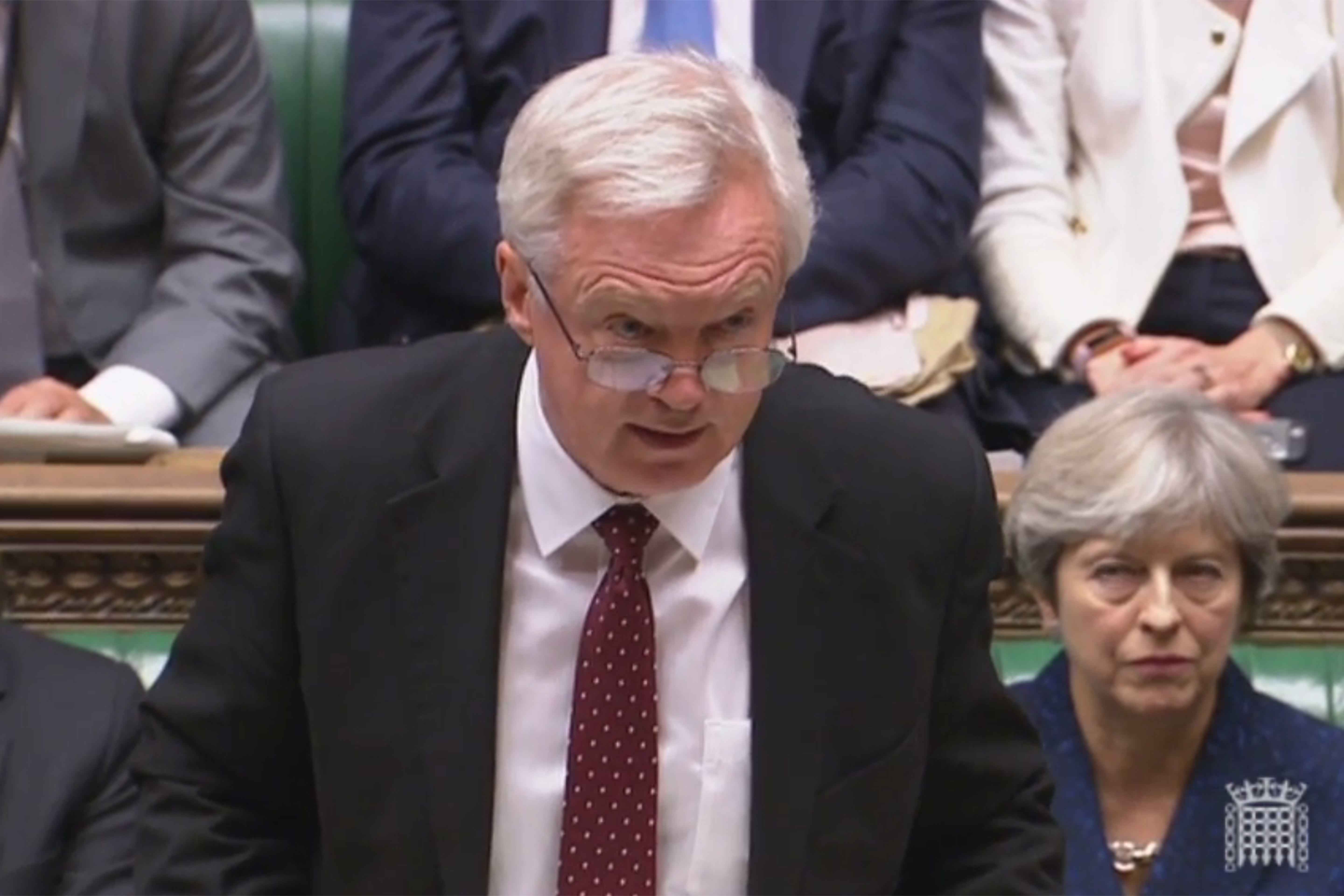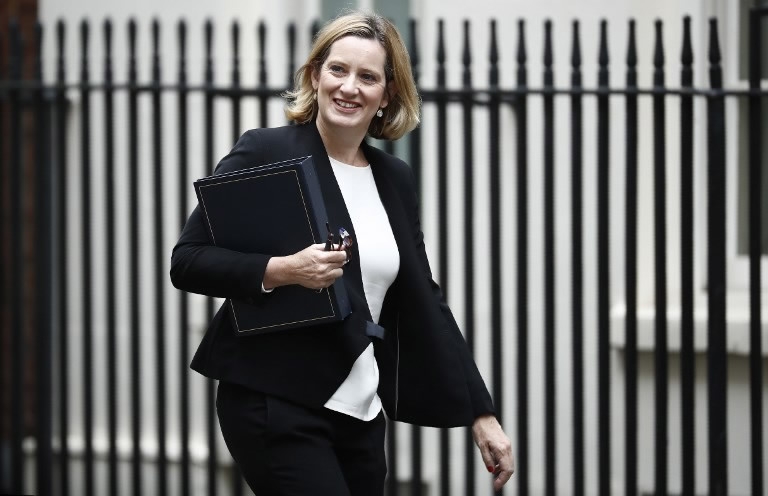
Politics
16:36, 17-Sep-2017
Britain aims for new security treaty with EU
CGTN

Britain wants to negotiate a new security treaty with the European Union to ensure there are no “operational gaps” after Britain leaves the bloc, the government said on Sunday.
“We already have a deep level of collaboration with the EU on security matters and it is in both our interests to find ways to maintain it,” Brexit Secretary David Davis said in a statement.
Britain’s proposal on future cooperation with the EU in areas of law enforcement, security and criminal justice will be published in a position paper on Monday.

David Davis speaks during the opening of the debate on the EU withdrawal bill in the House of Commons in central London on September 7, 2017. /AFP Photo
David Davis speaks during the opening of the debate on the EU withdrawal bill in the House of Commons in central London on September 7, 2017. /AFP Photo
It will come just days after 30 people were injured in a bomb blast on a London Underground train on Friday.
The paper will say that both Britain and the EU would benefit from a new treaty that would ensure “no operational gaps are created by the change from one set of arrangements to another.”
Britain is set to exit the EU in March 2019.
As part of a new treaty, Britain wants the creation of mechanisms to maintain current operational capabilities between the UK and the EU.
It also wants the new treaty to “provide appropriate dispute resolution,” without explaining what that would entail.
Ending jurisdiction of the European Court of Justice (ECJ) in Britain was a key rallying cry of pro-Brexit campaigners ahead of last year’s referendum on EU membership, along with calls to cut migration to the country.

Britain's Home Secretary Amber Rudd arrives to attend a weekly Cabinet Meeting at 10 Downing Street in central London on September 5, 2017. /AFP Photo
Britain's Home Secretary Amber Rudd arrives to attend a weekly Cabinet Meeting at 10 Downing Street in central London on September 5, 2017. /AFP Photo
The government has since softened its stance, saying instead that the ECJ should not have “direct jurisdiction” in Britain.
“Recent events in the UK and across Europe have shown the criminal and terrorist threats we face are varied and increasingly international,” Amber Rudd, Britain’s home secretary, said in a statement.
“As we prepare to leave the EU it is therefore vital that we agree a new way to ensure continued security, law enforcement and criminal justice cooperation,” she said.
The fourth round of Brexit negotiations between Britain and the EU is scheduled to start on September 25.
Source(s): AFP

SITEMAP
Copyright © 2018 CGTN. Beijing ICP prepared NO.16065310-3
Copyright © 2018 CGTN. Beijing ICP prepared NO.16065310-3